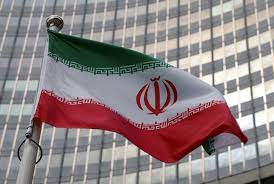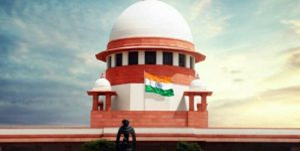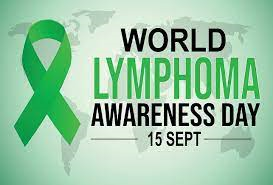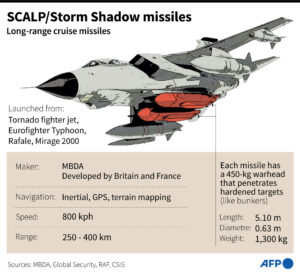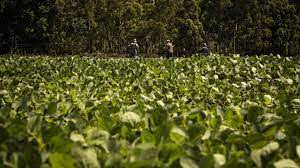Daily News Analysis.
Britain, France, and Germany to retain ballistic missile and nuclear proliferation-related sanctions on Iran.
News: The ballistic missile and nuclear proliferation-related sanctions against Iran that were supposed to expire in October as a result of the 2015 Iran nuclear deal have been maintained, according to statements made by Germany, France, and Britain.
- The three European allies, collectively referred to as the “E3,” who assisted in the negotiation of the nuclear agreement, announced in a joint statement that they would continue to impose sanctions on Iran as a “direct response to Iran’s consistent and severe non-compliance” with the agreement, also known by its formal name, the Joint Comprehensive Plan of Action, or JCPOA.
Prohibitions
- The sanctions prohibit anybody from purchasing, selling, or transferring drones and missiles to or from Iran and forbid Iran from building ballistic missiles that can deliver nuclear weapons.
- A number of Iranian people and organizations linked in the nuclear and ballistic missile programmes also have their assets frozen.
- By creating and testing ballistic missiles and supplying drones to Russia for its conflict with Ukraine, Iran has breached the sanctions.
Advocate-On-Record
News: An advocate-on-record (AoR) was recently fined 2,000 rupees by a Supreme Court (SC) Bench for sending a young junior to appear before the Bench without any paperwork.
- Using the authority granted to it by Article 145(1) of the Indian Constitution, which stipulates that the SC may occasionally enact rules for controlling the practises and procedures in the court, the SC introduced the idea of AoR.
- The term “advocate on record” refers to a supporter of a cause or appeal before the SC.
- The only people who may submit any case or document to the SC are these advocates. They may also act for a party or file an appearance before the SC.
- No other Indian High Court has a similar clause. The criteria that must be satisfied in order to become an AoR are outlined in Order IV Rule 5 of the Supreme Court Rules, 2013.
Criteria
- The Advocate must enlist with one of the State Bar Councils.
- The advocate must have at least four years of prior experience.
- The Advocate received a year of training from a more senior AoR.
- In order to take the SC examination, the Advocate has registered.
- The advocate must commit to hiring a registered clerk within a month after becoming a registered advocate on record, and they must have an office in Delhi within a 10-mile radius of the SC building.
- An AOR receives a special identification number after registering, and this number must be used on all paperwork submitted to the SC.
World Lymphoma Awareness Day 2023
News: The annual World Lymphoma Awareness Day is held on September 15.
- The lymphatic system, a component of the body’s immune system, is where lymphoma, a particular type of cancer, develops.
- The spleen, tonsils, lymphatic veins, lymph nodes, and bone marrow are all components of the lymphatic system.
- The abnormal growth and multiplication of lymphocytes, a type of white blood cell that can form tumors in different places of the body, is what gives lymphomas their name.
- Because the disease begins in white blood cells (lymphocytes) in your lymphatic system, it is regarded as a blood cancer.
- Lymphomas can either be aggressive (growing quickly) or indolent (developing slowly).
- Through the lymphatic system, it can quickly travel from the lymph nodes to other regions of the body. The immune system is less effective in fighting infections as malignant lymphocytes invade other tissues.
- Although the exact cause of lymphoma is unknown, it is believed to be a result of both genetic and environmental factors.
Lymphoma symptoms and signs may include
- Lymph nodes in the neck, armpits, or groin that are swollen but not in pain.
- Persistent tiredness.
- Fever.
- Sweats at night.
- Breathing difficulty.
- Unaccounted-for weight loss.
- Skin itch.
Storm Shadow Missile
News: Storm created in Britain Recently, a Ukrainian attack that targeted a Russian submarine and ship at a significant naval port in Crimea resulted in damage from shadow missiles.
- The UK and France jointly developed the Storm Shadow Missile, a long-range cruise missile with stealth characteristics.
- High-value permanent assets including air bases, radar sites, communications nodes, and port facilities are the kinds of things the missile is designed to attack.
- The weapon provides operators with highly flexible, deep-strike capabilities based on an advanced mission planning system, and it may be operated under harsh situations.
- The Air forces of Egypt, India, Italy, Greece, Saudi Arabia, Qatar, and the United Arab Emirates (UAE) also use the Storm Shadow.
- Usually, it is launched into the air. The missile is little over 5m long and weighs 1.3 tonnes.
- The missile travels at more than 600 mph thanks to a turbojet engine. It has a range of up to 300 km (200 miles) and can carry a conventional warhead weighing 450 kg.
- It has full autonomous steering and fire-and-forget technology. A passive imaging infrared seeker is mounted to the missile.
- Prior to launch, the missile is programmed with all of the target’s information and the course it will take to get there.
- When the missile is launched, it descends to a low height to escape hostile radar before locking onto its target with the infrared seeker.
DiCRA Platform
News: In order to jointly develop data-driven digital public goods, including DiCRA, the United Nations Development Programme (UNDP) and the National Bank for Agriculture and Rural Development (NABARD) have signed a Memorandum of Understanding (MoU).
- Key geospatial datasets relevant to climate resilient agriculture are made available for free through the collaborative digital public good known as Data in Climate Resilient Agriculture (DiCRA).
- For 50 million hectares of farmland throughout India, it already delivers intelligence on climate resilience and is curated by UNDP and partner organizations to inform public investments in agriculture.
- It is governed by the open access, open software, open source, and open APIs digital public good principles.
- Modern data science and machine learning are used to distinguish between farms that are very vulnerable to climate change and those that are climate change-resilient.
Advantages
- With UNDP’s technical assistance, NABARD will host and manage the DiCRA platform and use its primary geospatial datasets for policymaking, research, and development initiatives. This collaboration will help to improve and scale its use.
- The goal of this five-year technological collaboration is to promote collective climate action, develop cutting-edge platforms, and introduce new products to boost rural India’s economic empowerment.
- Such improvements in open data can draw attention to excellent practices, optimize agricultural investments, and protect populations from danger.

